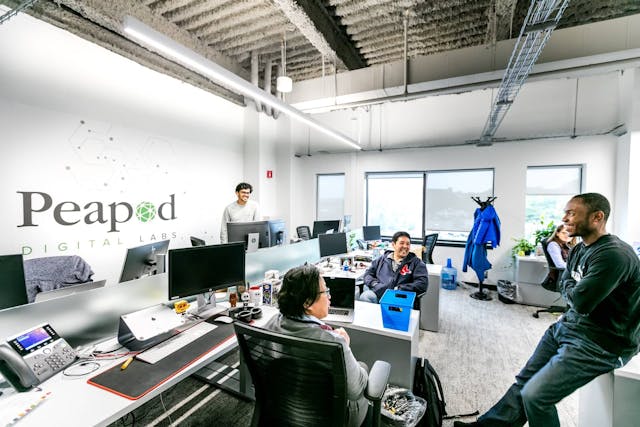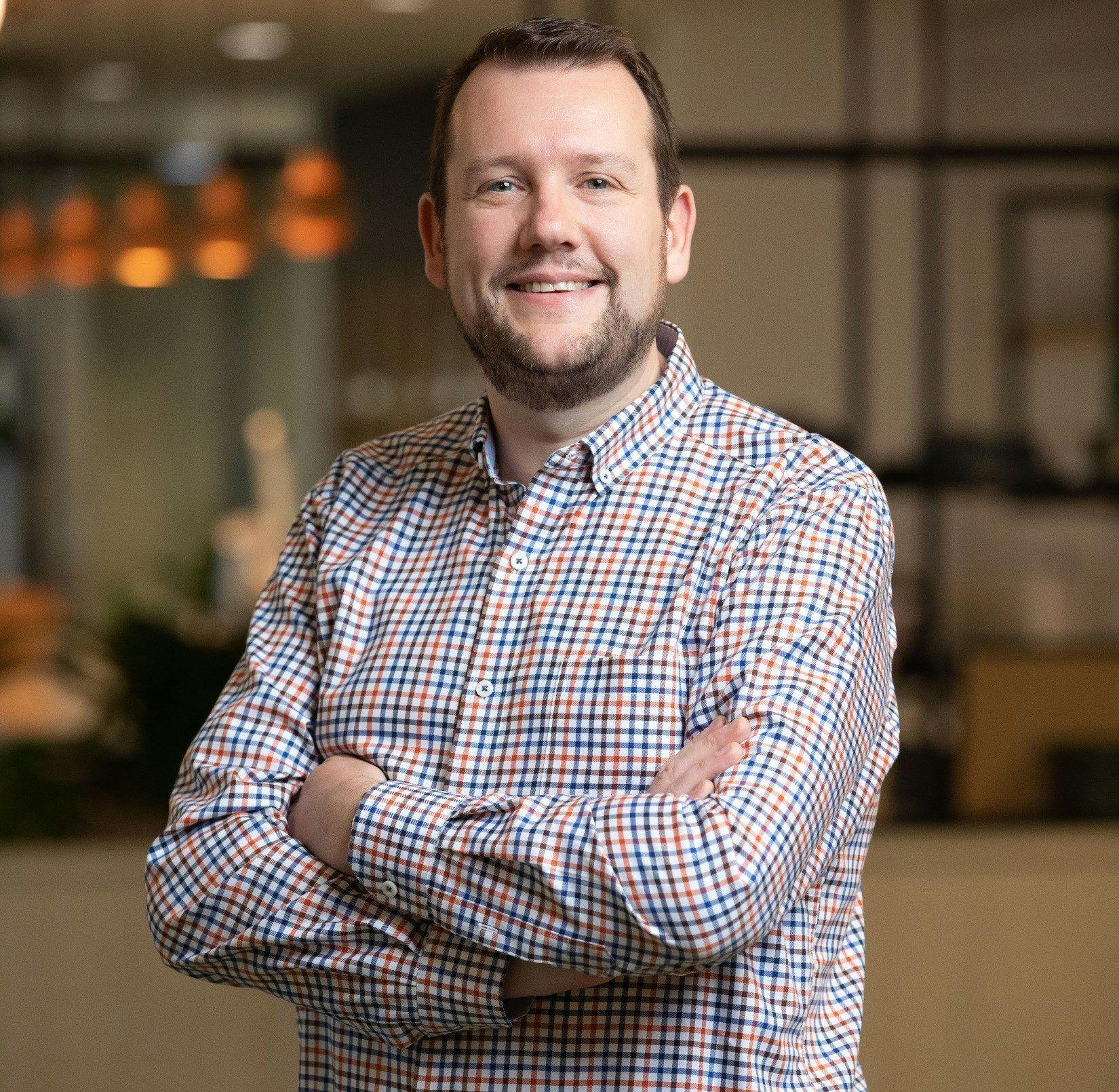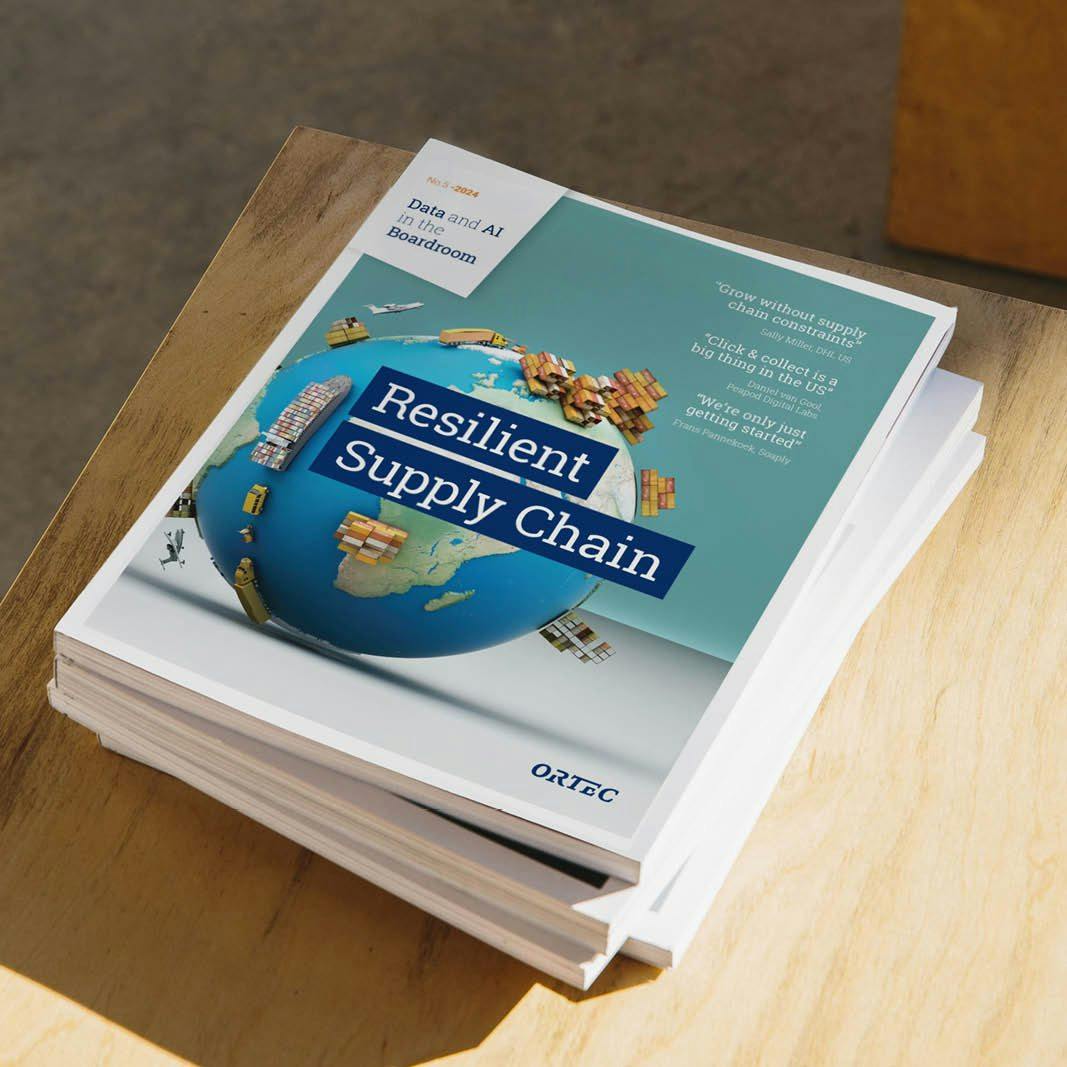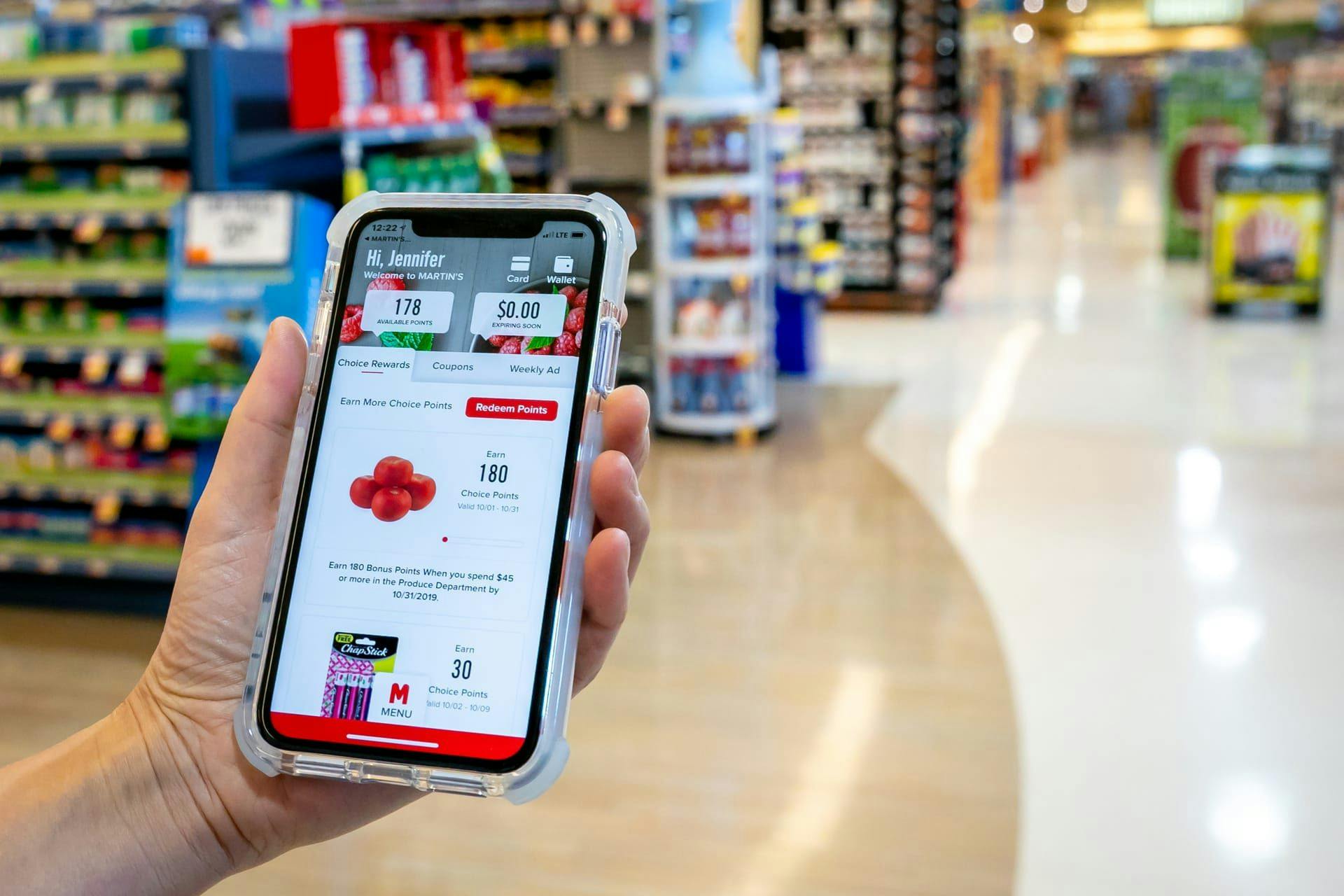Peapod Digital Labs (PDL) is the digital and e-commerce engine of the brands of Ahold Delhaize USA (ADUSA), one of the largest grocery retail groups in the United States. A recognized leader in omnichannel retail, PDL delivers streamlined strategies and technologies to the brands of ADUSA –Food Lion, Giant Food, The GIANT Company, Hannaford, and Stop & Shop – giving customers the freedom to shop on their own terms. Within the portfolio of services that PDL provides is Fulfillment Strategy & Solutions, which is the field of expertise of Van Gool.
“In a nutshell, we support the ADUSA brands in the entire process of fulfilling online orders and home delivery or pickup at stores. Our team is responsible for the fulfillment strategy. We analyze customer demand, track how fast it’s growing, and identify what that means for capacity of the network. The full suite of order fulfillment systems and processes, last mile, fleet management, apps, and centralized retail planning are all part of our scope. We’re currently looking at implementing new technology for delivery and pick-up capacity management, where there’s a lot of room for improvement for customers and efficiency.”
Repositioning
Van Gool, whose first job was as a part-time store clerk at Albert Heijn in the Netherlands, joined Albert.nl (now AH Online, ed.) in 2005 and has held various roles in fulfillment and logistics with different companies of Ahold Delhaize. After taking up roles in forecasting, replenishment, and supply chain development, Van Gool left for the US for a two-year knowledge exchange assignment in 2013. After the original two-year stint, he was asked to stay on another year, and another one, and then another one. “After five years, I decided to relocate here permanently. It coincided perfectly with the announcement of PDL and I relished the challenge.”
Established in 2019, Peapod Digital Labs was built on the legacy of Peapod, a pioneer in grocery e-commerce. Using the technology first created by Peapod, PDL has built a proprietary e-commerce platform for the brands of ADUSA. Van Gool: “Opportunities were identified to align the offline brick & mortar experience with the experience of online customers to create a seamless omnichannel experience.” Van Gool manages a team of 90 employees.
“We’re still growing steadily and are always thinking about how growth will affect our network.”
Explosive Growth
The COVID-19 pandemic obviously had a massive impact on online grocery shopping, with demand skyrocketing across the US. “A year before the pandemic, the ADUSA brands had just started scaling up their Click & Collect capacities in selected stores. We thought slow and steady would be the way to go, but the COVID pandemic forced ADUSA brands to go full throttle right away, expediting the roll-out of the Click & Collect formula to all stores. The brands chose to invest rapidly and heavily in stores and systems, successfully scaling up capacity within the space of only a few months.
“Perfecting the product first would have meant a much longer timeline, while launching an initial product first, suboptimal processes and all, and then iterating on it with incremental improvements, enabled speed and scale at a much quicker pace. The team wants to be a catalyst in the traditional grocery sector, embracing agile methods, rapid implementation and incremental optimization.”
While Van Gool admits the immense growth since the start of the pandemic slowed somewhat in 2023, he adds that “E-commerce is still growing. We’re always thinking about how growth will affect the network and about smart ways to continue increasing capacity and keeping up with demand.”

Daniël van Gool
"The team wants to be a catalyst in the traditional grocery sector, embracing agile methods, rapid implementation and incremental optimization."
Gig Economy
For over 25 years, next-day delivery had been the gold standard in the U.S. supermarket industry, serving as the foundation for many processes and systems. Just before the COVID pandemic, however, same-day delivery started to gain momentum. “The move to same-day delivery was fueled by the so-called gig economy, and the challenges were significant: the higher the immediacy of delivery, the closer you have to be to your customers. Crucially, the US is much less densely populated, with the exception of the major cities, which has seen stores become prominent locations for order fulfillment versus using fulfillment centers, primarily for Click & Collect. On top of that, stores are now also powering delivery. Click & Collect is popular in the US: suburban customers there are already used to driving longer distances, most stores are easily accessible and have ample parking. The target lead time for deliveries is one to two hours, which has seen a shift towards in-store order picking, rather than establishing massive new fulfillment centers outside the major cities.”
"Predictive planning provides insight into customer behavior and how we can adapt to it."
Is There a Smarter Way?
Demand for delivery outweighs demand for pickup in the major cities, which causes additional challenges. “In general, these stores also have high traffic and have less space for order picking and storage, so you have to figure out ways to be highly efficient with space. Grocery delivery, whether from the store or a fulfillment center, has a greater cost than the traditional approach of having customers do the shopping and “delivering” to their own homes. After all, when a customer comes into the store for items, they are doing their own order picking and delivery, with no cost to the retailer. When the work shifts from the customer to the brand, it's crucial to continually look for ways to minimize cost and increase productivity. Every step the ADUSA brands add to the order picking and delivery process increases cost, and minimizing that cost is a key goal.”
Predictive planning is particularly valuable when it comes to maximizing infrastructure utilization, Van Gool explains: “It provides insight into customer behavior and how to respond to it. Lead time for high-immediacy delivery, for example, is now usually two hours. Cutting that down to one hour means effectively doubling capacity, because all orders spend 50% less time in storage. Across ADUSA, many brands already successfully made the jump from eight hours to six, then to four, and from four to two. Mastering predictive planning might even allow us to break the one-hour barrier. That’s where AI and data science come into play, because I think that traditional forecasting simply doesn’t work for grocery e-commerce. It’s a highly dynamic environment and you have to spot patterns in customer behavior, which also requires factoring in parameters such as promotions, the weather and holidays. It’s a tough challenge, but one I thoroughly enjoy. We’re always looking to do things a little bit smarter.”
Sustainability
When it comes to sustainability, customers are in the driving seat: “Many ADUSA brands offer two-hour delivery, but customers can get a lower price if they’re willing to wait a day. Because costs and distance are intertwined, both can be optimized if customers are willing to wait and if their orders can be combined. This optimizes efficiency and minimizes environmental impact, encouraging customers to opt for a cheaper, more sustainable delivery option.”
In addition to improving route planning and reducing mileage, Ahold Delhaize USA’s brands are building greener stores, developing a more sustainable supply chain, and adopting electric trucks. Van Gool: “Eliminating paper processes is also an important fulfillment theme, and we look more and more to user interface and user experience experts to help with that. This has been common practice for customer-facing technology for years, but it’s now also becoming more standard practice for associate-facing technology. Sustainability is a key topic for all Ahold Delhaize brands, driven by the brands’ commitment to a healthy planet and healthy local communities on one hand, and customers’ increasing awareness of sustainability on the other.”
About the Interviewee
Daniël van Gool
Vice President of Fulfillment Strategy & Solutions
Peapod Digital Labs
Daniël studied Business Administration and Management at Erasmus University Rotterdam and has taken various courses at the Dutch Association of Supply Chain Management. He worked at Albert Heijn Online from 2005 to 2013, serving as Customer Service Manager, Inbound Supply Chain Manager and Logistics & Replenishment Manager. In September 2013, Van Gool set off for the US, where he was responsible for developing and improving the e-commerce fulfillment network at Peapod (an Ahold Delhaize USA subsidiary). In his current position, Van Gool and his team are responsible for the e-commerce fulfillment strategy used to support the US brands of Ahold Delhaize USA, including the corresponding roadmap for investments and tech developments.
Note: In 2024, the company merged its Peapod Digital Labs and Retail Business Services units into Ahold Delhaize USA, creating a unified support group for its U.S. banners.

Talk to Us About Optimizing Your Supply Chain
Learn more about ORTEC’s smart analytics tools for data-driven decision making. Let's talk about how we can help you add efficiency, realize meaningful cost and labor savings, and gain a competitive advantage.
Download Your Issue of Data and AI in the Boardroom
This article is featured in the "Resilient Supply Chain" issue of our Data and AI in the Boardroom magazine. We've asked leading figures in different sectors to share how their organizations go beyond maximizing supply chain efficiency by adapting quickly to the ever-changing market. Get your copy now.

